Hello and welcome to Farm to Table Talk! If you’re new here and aren’t yet subscribed, let me help you with that:
As crazy as everything is right now, people still are attracted to noble, righteous, sacred causes.
People like to feel like I'm part of the solution, I'm part of the healing, I'm part of the remedy, the cure, the redemption, the whatever, okay?
If you can honestly position yourself as you message your brand, if you can put yourself in the driver's seat as giving people the privilege of participating in something that's sacred, noble, and righteous and healing, that's attractive to people and they want to do that.
- Joel Salatin
Farmers have the support of customers who want to be a part of something sacred, noble, righteous and healing. Joel Salatin has experienced that first hand and has helped thousands of farmers all over the world discover it for themselves. Although it is daunting to start farming and encourage a more viable local food system, it is happening because of those connections. Joel Salatin hears all about it and shares the excitement he’s discovered at his farm, on the road speaking and in his latest of 16 books, Homestead Tsunami. In 2006 Another author, Michael Pollan, featured Joel in a key chapter of Omnivore’s Dilemna titled All Flesh Is Grass.. When critics of the modern American food system are challenged to offer a better way the answer is often Joel Saltin’s family’s Polyface Farm. www.polyface.com
Joel Salatin:
As crazy as everything is right now, people still are attracted to noble, righteous, sacred causes.
People like to feel like I'm part of the solution, I'm part of the healing, I'm part of the remedy, the cure, the redemption, the whatever, okay? If you can honestly position yourself as you message your brand, if you can put yourself in the driver's seat as giving people the privilege of participating in something that's sacred, noble, and righteous and healing, that's attractive to people and they want to do that.
Rodger Wasson:
People that listen to my podcast have heard today's guest before, and if I introduced him as a lunatic farmer, they'd know I was talking about Joel Salatin because, Joel, you called yourself a lunatic farmer, and I think it stuck. And every once in a while, you do stuff to make people say, well, I kind of see where he's coming from.
Joel Salatin:
Yeah, that's right. That's right.
Rodger Wasson:
You know what, Joel? I just picked up a book the other day that I was thinking about.Michael Pollan got a lot of people stirred up with The Omnivore's Dilemma in 2006.I went back on Chapter 8, All Flesh is Grass, when he came out and talked to you.It's really interesting because now I've been having so many different conversations around the country with people who are looking at our situation, looking at the climate, looking at how we can change things.
And I can trace an awful lot of it back to things like what Michael had in that book where he was talking his experience of being at your place and your explanations. I've heard you speak a couple of times and we've done a few podcasts before and you're not letting that grass grow under your feet either because you're going all over the place because people want to hear this message and they're not tired of it yet, Joel.
Joel Salatin:
No, in fact, I would say, you know, my latest book, the title is Homestead Tsunami, and I think that we're riding a wave. This wave is just continuing to escalate right now, if you've ever had like a wasp nest, you know, like on the back porch, up on the rafter of a back porch, and you go in and out of the back door all the time, and those wasps are just kind of sitting there on that nest, and they're just, they look like their sitting and doing nothing.The most common phrase I hear is, how do I disentangle? How do I disentangle from the system, from all these things? So yes, this whole idea is about participating in the food system.
You know I say the new 401k plan is living next to people who know how to grow things, fix things and build things and so that whole self-reliance of the homestead independence movement is just an indicator of this pent-up disturbed wasp nest that's ready to explode.
Rodger Wasson:
We’ve talked before and it was always good to hear you but it is almost as good seeing how excited other people get at your events who ssay boy I wish I had the guts or the time or the effort or the energy or some other excuse to walk in Joel Salatin's shoes. Every so often I hear back from listeners who say I'm glad you ran that podcast because it got me thinking it's about time I do something. And it led them to find some land or decide they're going to do this on the side until they can get something going.And I think, well, that's why it's worthwhile having these conversations.
Joel Salatin:
Yeah, everybody needs to be encouraged and empowered. I think there's a lot of fear in our land right now.I mean, COVID certainly brought a lot of that on, but now the Ukraine war and the Middle East situation and all that, there's a lot of fear and fear makes you run and you know fear is a good thing because if you didn't have a fear factor you know the lion might overtake you and eat you in the jungle right/ So fear is a good thing but you but you can't run away forever. Eventually fear has to give way to faith in something else where you stop, you put down anchors, you put down new roots and you rebuild you know you redo, you restart. So this this movement of gardening and backyard chickens and insta- pots is all symptomatic I think of people who finally realize, I can't just run away. I have to eventually run to. And so if you're watching these homestead festivals or, you know, homestead conferences, they're springing up all over the country.I think I'm scheduled to do something like 10 of them this year.This is unprecedented. These things are well attended. I mean, they've got thousands and thousands of people coming. Homesteaders of America are in a fairgrounds that can only hold 5,000 people and they're already sold out .You know, I mean, it's crazy.And so there is a yearning. I'll share this great story with you. So last year I was at the Homestead Festival in Tennessee with David Schaefer and I was doing a chicken butchering demonstration and it was early in the morning on a Saturday morning and we had I don't know what there were you know two or three hundred people there crowded around to watch us butcher chickens and David asked the group and you know most of them were you know early 30s early 40s you know families little kids a few teenagers but mainly you know mainly young families.
This movement is something that has grabbed the country recently.You and I are old enough to remember the hippie movement, the back to the land, the hippie movement of the Vietnam era.
And that gradually built up its head of steam there for a while.The hippies grew up and had kids and cut their hair and started to pay taxes and realized that it's not all dope and smoke and mirrors.
And now I think this is a more conservative response to what's going on in the country.
I think it's going to have some staying power. It's got some more staying power than maybe the faddishness of the counterculture movement…
To continue reading click the link below….
You can find the Farm To Table Talk Podcast on all major podcast platforms.
Apple Podcast | Spotify | Google Podcast | TuneIN
Thanks for tuning in! Stay tune next week for another Farm To Table Talk podcast episode!
Know someone who might like this newsletter? Please share it with them! Let's build a strong and supportive community together.



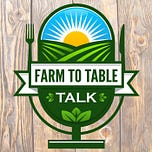



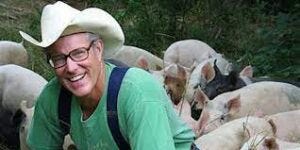





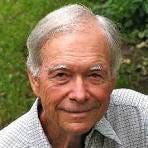
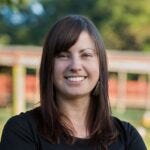

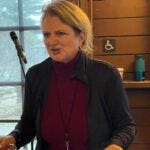
Share this post